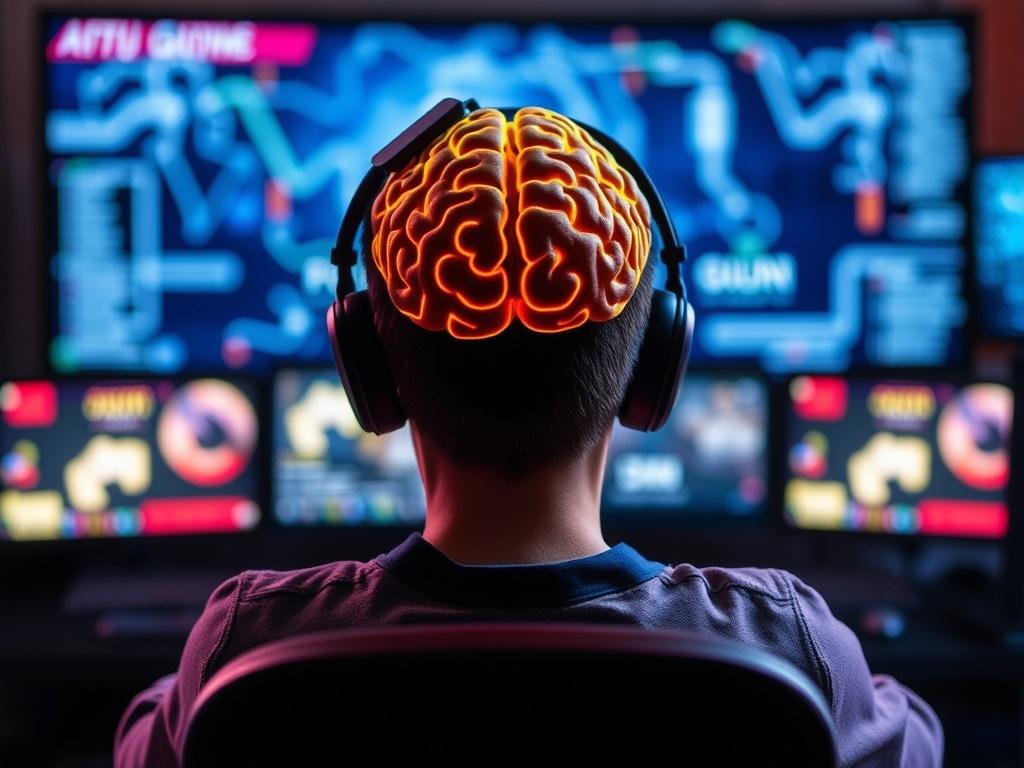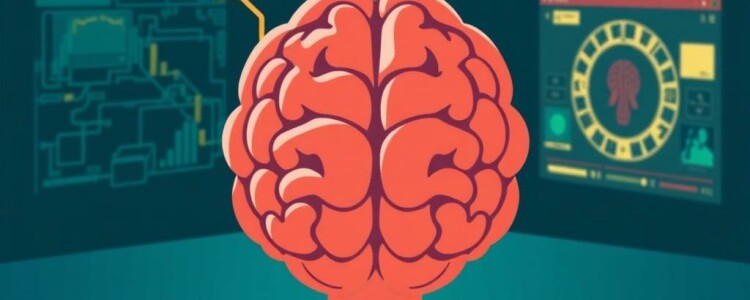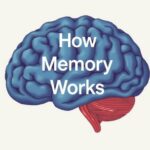The Growing Popularity of Video Games
Video games have become a central part of modern entertainment, capturing the attention of millions worldwide. From simple puzzles on mobile devices to immersive virtual reality experiences, video games come in countless forms and genres. But beyond just being a source of fun and relaxation, video games have a powerful effect on the brain. Many people wonder whether these effects are mostly positive or negative. How do video games affect the brain, and what does current science say about their impact on cognition, emotion, and behavior? Let’s take a deep dive into this fascinating topic.
Video gaming is no longer a niche hobby. According to recent studies, over two billion people play video games globally. This broad appeal crosses age groups, cultures, and demographics. With such widespread use, understanding how video games influence brain function is more important than ever. Whether parents, educators, or gamers themselves, everyone benefits from knowing more about the brain’s response to this interactive medium.
Understanding How Video Games Engage the Brain
At their core, video games are complex, dynamic tasks that require a combination of cognitive processes. Players must react quickly, solve problems, remember important information, and often work collaboratively. These demands engage different parts of the brain simultaneously. For example, action video games stimulate visual processing, coordination, and attentional control. Puzzle games typically challenge reasoning and planning abilities. Role-playing games require strategic thinking and social interaction.
When you play a video game, your brain receives constant sensory input and processes it in real time. Visual and auditory stimuli are combined with motor commands and decision-making. This rich environment triggers multiple neural networks, causing changes in brain activity and even structure over time. Neuroscientists have used tools such as functional magnetic resonance imaging (fMRI) and electroencephalography (EEG) to track these changes and understand the brain’s adaptation to video gaming.
Cognitive Enhancements from Video Games
One of the most discussed benefits of playing video games is their effect on cognitive abilities. Research generally supports the idea that certain video games can improve skills like attention, spatial awareness, and problem-solving. For example, players of fast-paced action games often demonstrate better visual acuity and faster reaction times compared to non-players.
Games that require multitasking and managing multiple objectives can improve executive functions, which include planning, working memory, and cognitive flexibility. These are essential skills for everyday life, enabling us to adapt to new situations or make informed decisions quickly. Even older adults playing brain-training games have shown improvements in memory and mental speed.
Effects of Video Games on Emotional Regulation and Social Skills
Video games are often social experiences, connecting players worldwide. Multiplayer games create opportunities for cooperation, teamwork, and competition, offering a virtual environment for social interaction. This social aspect can positively influence emotional regulation and empathy. Players learn to manage stress, frustration, and motivation during gaming sessions.
Some studies have found that video games can help in reducing anxiety and depression symptoms by offering an engaging distraction and achievement-based rewards. Role-playing games and narrative-driven games, in particular, are praised for their capacity to develop empathy by placing players in others’ shoes or encouraging moral decision-making.
The Controversies: Video Games and Negative Brain Effects
Despite these positive aspects, there is an ongoing debate about the negative impacts of video games on the brain, especially concerns surrounding violent content and addiction. Critics worry that exposure to violent video games may increase aggression or desensitize players to real-world violence. There’s also concern that excessive gaming might lead to problematic use, where players neglect other aspects of life, resulting in mental health challenges.
Violent Video Games and Aggression
The link between violent video games and increased aggression remains complex and controversial. Multiple studies have reported short-term increases in aggressive thoughts or feelings after playing violent games. However, the long-term effects are less clear. Most researchers agree that video games alone are unlikely to cause violent behavior but may contribute when combined with other risk factors like family issues or mental health problems.
Video Game Addiction and Brain Activity
The potential for video game addiction or “gaming disorder” has gained recognition as a mental health issue by organizations like the World Health Organization. Some players develop compulsive gaming habits, interfering with daily responsibilities and relationships. Neuroimaging studies show that pathological gamers might have altered activity in reward-related brain regions, similar to patterns seen in substance addiction.
However, it is essential to distinguish heavy gaming from addiction. Not every enthusiastic gamer experiences negative consequences. Identifying when gaming behavior becomes harmful is crucial and depends on factors such as loss of control, neglect of other areas of life, and continued play despite problems.
How Different Types of Video Games Affect the Brain
Not all video games impact the brain in the same way. Different genres offer distinct cognitive and emotional challenges, which can lead to varied brain responses. Understanding these differences can help players choose games more suited to their mental health and growth goals.
Action and Shooter Games
Action games, especially first-person shooters, are known for boosting visual attention and spatial skills. They require players to track many moving targets and react quickly, which enhances reaction time and peripheral vision. These games often challenge hand-eye coordination and timing as well.
Strategy and Puzzle Games
Games like chess-based or resource management titles require planning and careful decision-making. These games strengthen problem-solving skills and logical reasoning. Players often engage in long-term strategic thinking and resource allocation during gameplay.
Role-Playing Games (RPGs) and Social Games
RPGs involve narrative immersion and character development, often promoting empathy and complex decision-making. Multiplayer online role-playing games add a social dimension where cooperation and communication are vital. These experiences can improve social cognition and emotional intelligence.
Simulation and Educational Games
Simulation games mimic real-world tasks or environments, such as flying planes or managing cities. Educational games focus on teaching specific skills or knowledge. Both types of games can provide fun but purposeful brain training, encouraging learning and practice of real-life skills.
Scientific Studies and Brain Changes Linked to Video Games

In recent years, countless scientific studies have illuminated how video games reshape brain structure and function. Brain plasticity—the ability of the brain to change with experience—is key to these effects. Playing video games regularly can lead to measurable changes in brain regions linked to attention, memory, and sensory processing.
| Brain Area | Function | Effect of Video Games |
|---|---|---|
| Prefrontal Cortex | Decision-making, executive control | Enhanced activity and connectivity with strategic gaming |
| Hippocampus | Memory formation and spatial navigation | Increased volume in some gamers, especially with spatially rich games |
| Occipital Lobe | Visual processing | Improved visual acuity and detection skills in action game players |
| Striatum | Reward and habit formation | Altered activation patterns in gaming addiction cases |
These adaptations demonstrate that video games are not passive entertainment but actively shape brain function. Whether these changes are beneficial or detrimental depends largely on the type of game and gaming habits.
Practical Advice: Enhancing Benefits While Minimizing Risks

Knowing how video games affect the brain empowers players and parents to make thoughtful choices. Here are several tips to maximize the benefits of gaming while reducing potential downsides:
- Set time limits to prevent excessive or compulsive play.
- Choose games with positive or educational content when possible.
- Encourage social gaming experiences to foster teamwork and connection.
- Balance gaming with physical activity and offline social interaction.
- Monitor for signs of stress, anxiety, or behavioral changes related to gaming.
These strategies help ensure that video games remain a healthy part of your life. They also promote the positive brain changes that come with purposeful and moderate play.
Future Directions: The Evolving Relationship Between Video Games and the Brain
The intersection of technology, neuroscience, and gaming continues to evolve rapidly. With advances in artificial intelligence, virtual reality, and brain-computer interfaces, video games are becoming ever more immersive and personalized. This evolution opens new opportunities for leveraging games in education, therapy, and cognitive rehabilitation.
Scientists are also investigating how individualized game designs can target specific neural circuits to improve attention disorders, memory deficits, and even mental health conditions. The field of “serious games” — designed with intentional therapeutic or educational goals — is growing. These innovations promise to deepen our understanding of how video games affect brain function and potentially harness these effects for beneficial purposes.
Summary of Key Brain Effects from Video Gaming
| Effect | Description | Game Types Linked |
|---|---|---|
| Improved Attention | Enhanced focus and ability to track multiple stimuli | Action, Shooter |
| Better Spatial Skills | Strong mental mapping and navigation abilities | Action, Puzzle, RPG |
| Enhanced Problem-Solving | Improved strategic thinking and planning | Strategy, Puzzle, RPG |
| Social and Emotional Growth | Increased empathy, cooperation skills, and emotional regulation | RPG, Multiplayer Games |
| Risk of Addiction | Potential for compulsive gaming and altered reward system | Various, dependent on individual usage patterns |
Conclusion
Video games wield a powerful influence on the brain, shaping how we think, feel, and interact with the world. They can sharpen cognitive abilities such as attention, memory, and problem-solving, while also nurturing social skills and emotional resilience when played thoughtfully. Yet, as with any tool, balance is essential. The potential downsides, including addiction and the effects of violent content, underscore the need for mindful gaming habits and ongoing research. As video games continue to evolve alongside neuroscience, they promise not only to entertain but also to enrich brain function and mental well-being in unprecedented ways. By understanding how video games affect the brain, players and caregivers alike can make informed choices that foster both joy and cognitive growth.




















